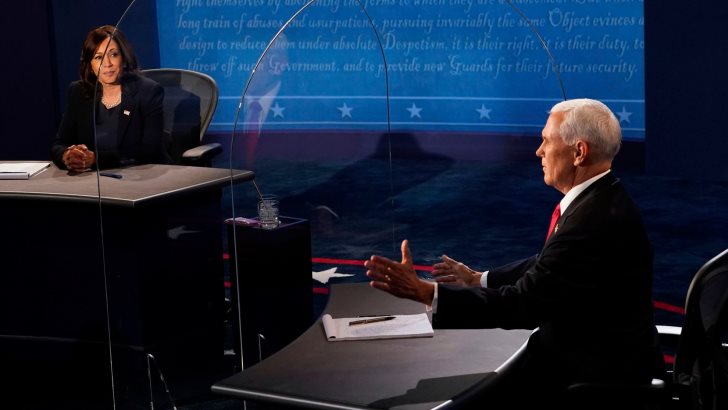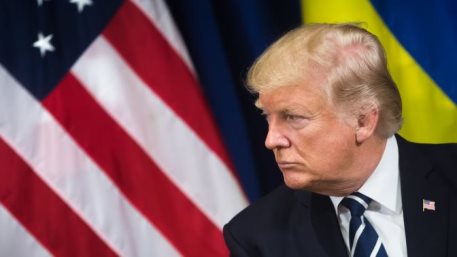
These are really tumultuous times for American democracy, with less than a month remaining before the Presidential elections. Following the highly controversial first debate between Donald Trump and Joe Biden, which left the American public dumbfounded, it was time for Vice President Mike Pence and Democratic Nominee Kamala Harris to face each other off in a battle of rhetoric.
The initial receptions of the debate from various media outlets and social commentators praised the civility of the occasion as a whole, still reeling from the absolute blunder of a debate that took place less than two weeks ago. In comparison, yesterday's polemic was indeed comparatively more cordial than the tirade of smears in Ohio; however, it is not to say that it was without its episodes of occasional slanders and outbursts.
The stakes really couldn't be higher ahead of the November election, with the coronavirus pandemic continuing to pose а significant threat to the wellbeing of the American public; the economy being impeded by a constant barrage of internal and external ripples; China and Russia incessantly challenging America's place on the international stage; and many more outstanding issues, that concern voters in the US. Additionally, the contraction of COVID-19 by Donald Trump, who took a new U-turn on the subject of pandemic stimuli yesterday, could spell even more upheaval for the national political arena if the President's condition worsens right before the pivotal vote.
It is quite telling of the polarisation of opinions in the States that, given the context of all of these urgent developments, one of the "highlights" from yesterday's debate was the random fly on Mike Pence's forehead. It should go without saying that all of these underlying issues are going to pose major challenges for the future Administration in Washington, which is why one should not veer off away from the central arguments of the two sides to focus on a fly. Instead, the stances of Harris and Pence on the most pressing issues for American politics should be carefully scrutinised for hints at what might be installed next for America and the world.
On the matter of the coronavirus, which was the first point of discussion, both candidates were oddly vague about it, when asked about how their respective camps would handle the pandemic come the inauguration date. While Kamala Harris sounded more vocal and emotional about the issue at hand, challenging the way the Trump cabinet has addressed the crisis so far, she did not offer any concise propositions for necessary improvements that a Joe Biden presidency would make in order to improve the situation. In contrast, Mike Pence sounded calmer and more collected in his rebuttal, citing the early imposition of restrictions on travel between the US and China, as a measure that 'prevented more than 2 million deaths'.
The next topic that was discussed was the economy. Both candidates raised valid points; however, none of them was able to come on top because they argued from two utterly different vantage points. Mike Pence's case resonated closely with what Trump had said in the previous debate – the Obama administration had, according to them, failed to stipulate fast recovery in the wake of the 2008 economic crunch, and it has been the Trump presidency that has really fostered robust growth. Meanwhile, Harris argued that America faces one of the most significant economic slumps in recorded history due to a failure of leadership on the part of Trump and Pence during the coronavirus crisis.
In reality, the economy is fluid with many concomitant factors affecting its short-term and long-term directions, which is why no one can claim sole responsibility for its ultimate successes, or be blamed entirely for its worst failures. Economic policy does not exist in a vacuum, and the achievements of the Trump years at the White House are based on the difficult decisions Obama had to make before him. Accordingly, the next administration, whether it be Trump's or Biden's, would have to take responsibility for any ripples from the coronavirus fallout that are yet to stymie the economy.
Essentially, the economy functions akin to a 17th-century ship of the line, with its grand mast and enormous hull. The captains of these massive juggernauts at the golden age of sail had to carefully plan their actions in advance because it took a while before these ships turned. So, even the subtlest changes of course had to be carefully construed ahead of time, in order to make the most precise turns. Similarly, changes in the course of the economy oftentimes take longer than a single presidential mandate to unfold. This is why the next President needs to be keenly aware that he would have to make decisions concerning the long-term while bracing for unexpected drawbacks that have not yet transpired.
The tipping point for Pence was a question on the environment and whether we are currently facing an existential crisis. Seemingly flustered by the question, this is where he temporarily lost control in the debate. The Vice President dodged the underlying issue, and instead retreated to his previous point on jobs creation and the tax policy of Biden, seemingly trying to smear the Dems' stance on taxes.
In contrast, Harris struggled when the discussion drifted on foreign policy. The two participants contested on the perceived repercussions from the killing of Iranian General Qasem Soleimani, which was carried out on the direct orders of President Trump. Harris attempted to stress on the severity of Iran's response – a targeted attack of an American military base – seemingly suggesting that the subsequent escalation of tensions could have been avoided if the attack had not been executed at all. What the Senator failed to mention, however, was that Soleimani was a sworn enemy of the United States; who did not go the extra mile in order to conceal his desires to inflict future hits on American troops in the region. So, the highly controversial killing of one of the major US adversaries on the political arena in the Middle East was one of the few bright spots of Trump's time in Washington.
On the whole, both participants exhibited stronger control over the debate compared to their respective running mates, which means that the future President is going to have a strong aide by his side, whether it be Trump or Biden




















